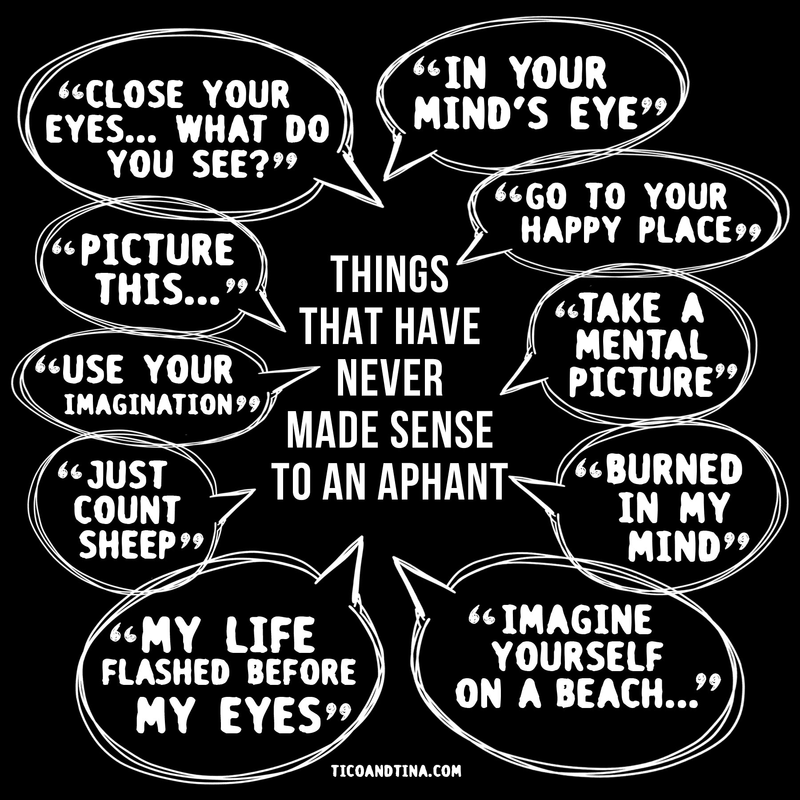What is aphantasia? It’s the inability to create images with your mind. I recently learned that I have this condition. It has been a wild ride ever since. I have been testing friends and family members to see how widespread the condition is within my circle. I have a few friends who have it, but most do not. It roughly aligns with the estimate that two to five percent of the population has the condition.
History
The phenomenon didn’t receive a name until cognitive neurologist Adam Zeman coined aphantasia in 2015. The name comes from the ancient Greek words “a,” meaning “without,” and “Phantasia,” meaning “imagination.” Oddly, Francis Galton first described this condition in 1880, yet it appears to be relatively undiscovered. It wasn’t first studied until 2005 when a man developed aphantasia during surgery.
How I See It
The world is beautiful. I see images with solid clarity, and some say I have a great eye.

I’ve enjoyed staring into the black and white void I see under my eyelids, while others have used it for a canvas. I wondered why people would tell me that counting sheep can put you to sleep. It does absolutely nothing for me. 🐑
It’s mind-boggling that I didn’t learn about this condition during fifty years of my life. I can give myself a bit of a break. I have strong mental models of things and stuff in the world. When people have told me to visualize something, I can pull up my mental models and become creative.
I wonder if everyone without aphantasia thinks that imagining is the conjuring of images in the mind’s eye. When I imagine things, I wonder about possibilities and think about what could be. I don’t plaster images on my mental canvas. I don’t paint pictures with unique attributes. My approach to imagining uses vague ideas of things with connective relationships between them. I form a reality in my mind as I change details while considering new possibilities.
It’s No Big Deal
It’s fascinating to me as I’ve always been curious about psychology. It’s fascinating to think about how unbelievably unique our points of view are in this world. To me, this isn’t an Earth-shattering revelation. We’re all walking around with different ideas about how the world works and how ourselves work. I’m glad for our differences, and I’m happy to learn about myself when it might seem like a disability.
I’ve considered what it would take to become a Psychologist with a heavy helping of data science. I would be traveling from the tech industry to psychology, so that it wouldn’t be easy, but I sure would find it fascinating.
Please share this information with your friends if you landed on this post. I’m eminently curious to see what happens when enough people know about this condition to study it deeply. Who knows, maybe I can conjure an image one day with the help of science. 🧬
References
- Aphantasia - Wikipedia
- What Is Aphantasia? - Documented Testing Methods
- Drawing WITHOUT Imagination - When You Can’t Visualize ANYTHING
